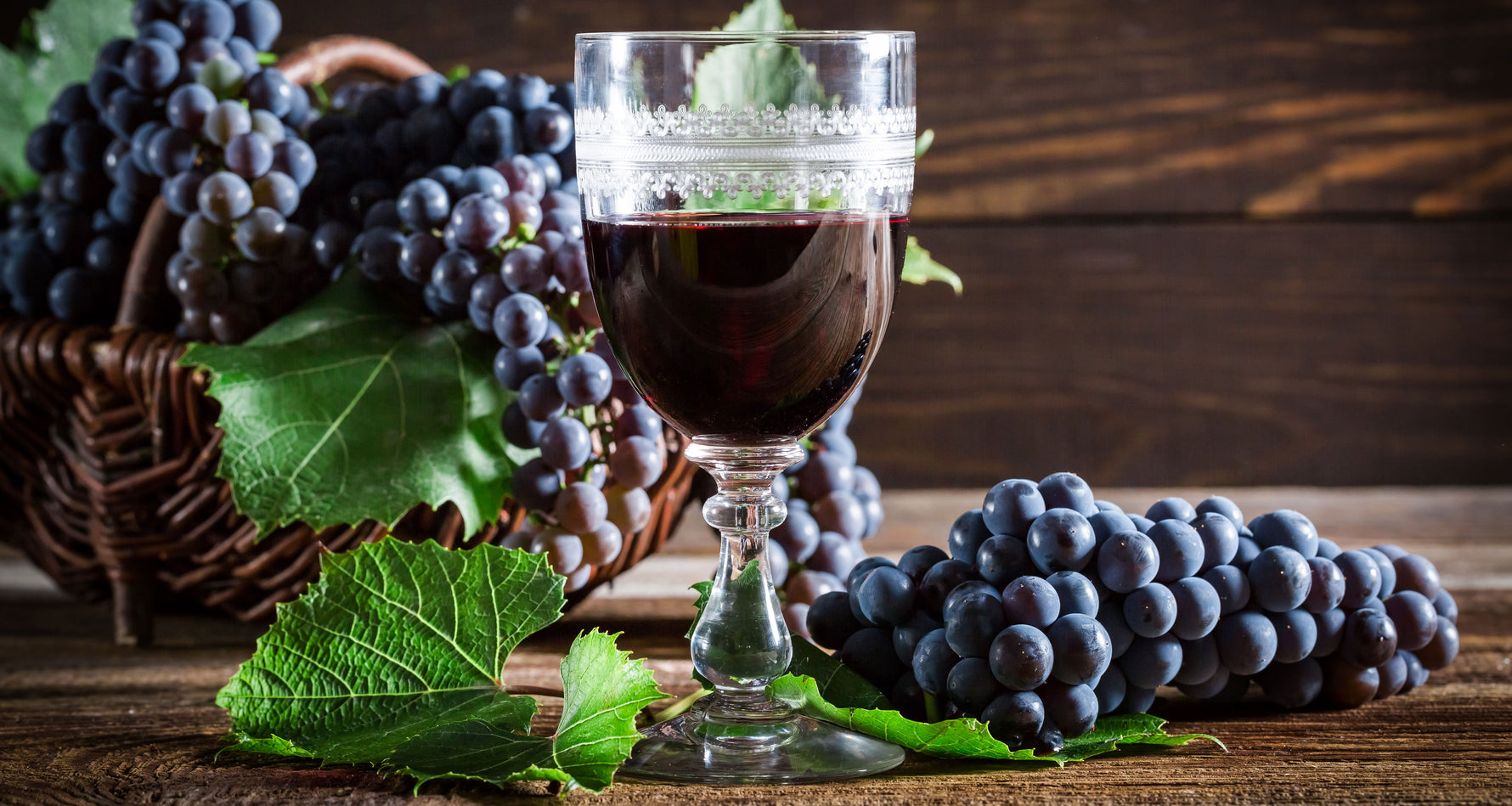USE CODE NEWYOU FOR 35% OFF SUBSCRIPTIONS FOR 3 MONTHS
USE CODE NEWYOU FOR 35% OFF SUBSCRIPTIONS FOR 3 MONTHS
USE CODE NEWYOU FOR 35% OFF SUBSCRIPTIONS FOR 3 MONTHS
USE CODE NEWYOU FOR 35% OFF SUBSCRIPTIONS FOR 3 MONTHS
USE CODE NEWYOU FOR 35% OFF SUBSCRIPTIONS FOR 3 MONTHS
USE CODE NEWYOU FOR 35% OFF SUBSCRIPTIONS FOR 3 MONTHS
USE CODE NEWYOU FOR 35% OFF SUBSCRIPTIONS FOR 3 MONTHS
USE CODE NEWYOU FOR 35% OFF SUBSCRIPTIONS FOR 3 MONTHS
USE CODE NEWYOU FOR 35% OFF SUBSCRIPTIONS FOR 3 MONTHS
USE CODE NEWYOU FOR 35% OFF SUBSCRIPTIONS FOR 3 MONTHS
USE CODE NEWYOU FOR 35% OFF SUBSCRIPTIONS FOR 3 MONTHS
USE CODE NEWYOU FOR 35% OFF SUBSCRIPTIONS FOR 3 MONTHS
USE CODE NEWYOU FOR 35% OFF SUBSCRIPTIONS FOR 3 MONTHS
USE CODE NEWYOU FOR 35% OFF SUBSCRIPTIONS FOR 3 MONTHS
USE CODE NEWYOU FOR 35% OFF SUBSCRIPTIONS FOR 3 MONTHS
USE CODE NEWYOU FOR 35% OFF SUBSCRIPTIONS FOR 3 MONTHS
USE CODE NEWYOU FOR 35% OFF SUBSCRIPTIONS FOR 3 MONTHS
USE CODE NEWYOU FOR 35% OFF SUBSCRIPTIONS FOR 3 MONTHS
USE CODE NEWYOU FOR 35% OFF SUBSCRIPTIONS FOR 3 MONTHS
USE CODE NEWYOU FOR 35% OFF SUBSCRIPTIONS FOR 3 MONTHS
USE CODE NEWYOU FOR 35% OFF SUBSCRIPTIONS FOR 3 MONTHS
USE CODE NEWYOU FOR 35% OFF SUBSCRIPTIONS FOR 3 MONTHS
USE CODE NEWYOU FOR 35% OFF SUBSCRIPTIONS FOR 3 MONTHS
USE CODE NEWYOU FOR 35% OFF SUBSCRIPTIONS FOR 3 MONTHS
EZ Melts Health Blog

EZ Melts Health Blog
How Resveratrol Supports Your Body’s Functions
by Annie-Eliza Stevens
on Jul 18 2024
Reading Time: 3 minutes
Have you ever wondered why enjoying a glass of red wine from time to time is often touted as heart-healthy? One reason is it might be one of the natural sources of resveratrol, a compound being touted for its potential health properties.
Let's dive into what makes this molecule so intriguing and how getting more of it in supplement form could be beneficial to you.
What is Resveratrol?
Resveratrol is a polyphenol, a type of compound found in plants. It's most famously present in red wine and grape skins as mentioned above, but you can also find it in peanuts, blueberries, and dark chocolate.
Plants produce it as a defense mechanism against stress and damage, and interestingly, research on resveratrol shows it seems to have protective effects in humans too.
How Does Resveratrol Work?
At its core, resveratrol appears to be a cellular multitasker. It interacts with various proteins and enzymes in our bodies, potentially influencing multiple health-promoting pathways.
Resveratrol acts like a key that turns on special proteins called sirtuins, which are often dubbed "longevity genes”. These proteins play roles in our cellular health and aging processes.
Think of sirtuins as cellular maintenance workers - they help repair damage, regulate energy use, and may even slow down aging processes.
Anti-Aging Potential
While we can't turn back the clock, resveratrol might help slow its ticking:
Antioxidant power: Resveratrol may encourage the body to destroy free radicals—unstable molecules from our enviornment that can damage cells and contribute to aging.
Cellular health: It may help manage senescent cells - old cells that can cause inflammation and tissue dysfunction.
DNA protection: Some studies suggest resveratrol might help promote DNA health, a key factor in aging.
Heart Health Support
Your heart might just love resveratrol as much as it loves exercise:
Blood pressure: Resveratrol can encourage blood vessels to relax, potentially supporting a healthy blood pressure.
Cholesterol balance: It promotes healthy cholesterol levels, particularly by supporting "good" HDL cholesterol.
Arterial health: Resveratrol promoting good circulation by supporting the flexibility and longevity of arteries.
Promote Brain Health
Keeping our minds sharp is a top priority, and resveratrol might lend a hand:
Neuroprotection: It may support brain cells in their fight against oxidative stress and inflammation.
Blood flow: By supporting healthy blood vessels, resveratrol might promote healthy blood flow to the brain.
Cognitive function: Some studies suggest it could help maintain cognitive function as we age.
Assists Immune System
A robust immune system is crucial, and resveratrol seems to be on our side:
Immune cell support: It may support the function of various immune cells and their response to threats to your health.
Inflammation balance: Resveratrol appears to promote a balanced inflammatory response, crucial for overall immune health.
Conclusion
Most studies on resveratrol have been done in labs or on animals, so we're still learning about its effects in humans. Also, the amounts used in studies are often higher than what you'd get from food alone, which is why some people consider taking resveratrol supplements.
If you're intrigued by resveratrol, consider talking to your healthcare provider. They can help you understand if it might be beneficial for you and how to incorporate it safely into your routine.

EZ Melts Health Blog
4 Easy Ways to Support Heart Health
by Annie-Eliza Stevens
on Aug 28 2023
Reading Time: 3 minutes
How’s your heart doing?
Heart health is a critical aspect of overall well-being, but unfortunately, many diseases and conditions can have a negative effect on the heart, such as high cholesterol, hypertension, diabetes, or coronary artery disease.
Heart issues can lead to an array of complications and long-term health concerns, including stroke, dementia, and diabetes.
However, there are some easy ways that you can take to support your heart health and live your best life without changing your entire lifestyle.
Swap 20 Minutes of Social Media for Movement
Come on—we all do it. How many hours are you wracking up on your phone each day?
We love videos of cats doing cute things as much as the next person, but a sedentary lifestyle that's common with extended periods of sitting and scrolling on social media can lead to poor heart health.
And even if you're checking your phone for five minutes here and there, take that time aside and put it towards moving your body.
Regular physical activity supports good cardiovascular health, so rather than spending 20 minutes on your phone or laptop, take a walk around the block or do some stretches in your living room. The cat videos will be there when you get back.
Reduce Sodium and Add Flavor
High-sodium diets are linked to an increase in blood pressure, which puts additional strain on the heart. And unfortunately, the American diet is on average high in sodium.
Make an effort to reduce your salt intake by avoiding processed foods and adding sauces and seasonings. Try not to put salt on the dinner table before eating so you aren't tempted to add more.
Reducing the takeout and going out to eat can help too, as dishes at restaurants are largely unregulated in terms of ingredients and you can't be sure how much is in your order. Food prepping for the week can make it less tempting to go out.
If you like to cook, discover new spices and flavors that you can add to a dish while cutting back the sodium.
Where you would normally add a bunch of salt to a recipe, cut down the amount you use. Instead, use fresh herbs and spices like garlic and turmeric to add flavor to your dishes.
Swap In Plant-Based Once a Day
Ditching animal-based proteins (like beef, pork, and eggs) for plant-based alternatives like beans, legumes, or tofu can help improve heart health too. That's because plant-based foods are lower in saturated fat and cholesterol than animal proteins.
Saturated fat and cholesterol are bad for heart health, as they can increase your LDL cholesterol levels and clog up your arteries.
Swapping in plant-based proteins once a day is an easy way to support your heart health. Try adding chickpeas to a salad instead of chicken, or using plant-based crumbles instead of beef on Taco Night.
And again, just like with fruits and veggies, it doesn't have to be an all-or-nothing thing—start by swapping out one meal item a day for something plant-based and go from there. There are so many options now!
If you're an absolute carnivore and the switch feels too hard, try starting out with cutting red meat and swapping it for fish or chicken a couple of times a week, which are meat options lower in cholesterol and saturated fat.
If you're struggling with ideas of what to make for dinner, try looking up some recipes online that focus on using mainly plant ingredients. We have some recipes here in our blog.
Supplements for Heart Health
Even if you are eating a balanced diet, taking additional supplements is a good idea to consider with your medical professional. It's quick, easy to do, and relatively cost-effective.
There are several supplements that can support heart health in the long run:
Resveratrol, a compound found in red wine and other foods, supports a lower risk of heart disease
CoQ10 is an antioxidant that supports energy production & healthy cell function, including red blood cells
Magnesium promotes lower, more regulated blood pressure levels
Calcium promotes strong & healthy bones while also supporting your heart
Conclusion
Your heart health is important and there are many steps you can take to support it that don't feel like an overhaul of your entire lifestyle.
No matter what changes you make—big or small—think of it as an investment in yourself. It's never too late to start taking care of yourself.
Aim for a balanced diet, more movement and less tech, getting plenty of fruits & veggies, switching to plant-based meals once in a while, and talking to your doctor about supplements.
Remember, small changes add up over time and your heart will thank you for taking the necessary steps to protect it.

EZ Melts Health Blog
The Best Ways to Take Care of Your Heart This American Heart Month
by Annie-Eliza Stevens
on Feb 10 2023
Read Time: 4 minutes
February is American Heart Month. What better time to talk about taking care of your cardiovascular health? We're in favor of everyone adopting some healthy habits (and stopping a few unhealthy ones) to support their best health. Here are some of the best ways to be smart about your heart this year and a special limited-time offer.
Quit Smoking
This one might be obvious, but smoking cigarettes isn't great for your health. In fact, smoking is one of the leading causes of cardiovascular disease. If you smoke, it increases your risk of developing heart disease, stroke, and lung cancer.
Smoking is linked to heart disease in that it damages your arteries and thereby reducing blood flow to your heart muscle over time, and increasing the risk for blood clots that form deep inside an artery or vein.
There are many programs and aids that can help in your journey to quit, try experimenting and seeing what works best for you.
Limit Alcohol Intake
Heart disease is the leading cause of death in the United States, and drinking too much can raise your blood pressure and increase your risk for heart disease.
People who drink alcohol should limit themselves to one drink per day for women and two drinks per day for men. Is happy hour calling your name after work? If you don't want to quit entirely, try reducing how much alcohol you consume each day as much as possible.
Reduce Stress
Stress is a huge trigger for heart disease, so it's important to reduce stress in your life. Try these tips to reduce stress:
Get moving. A brisk morning walk or evening jog can help you clear your mind and improve your mood. Exercise can lower blood pressure and LDL cholesterol levels, which are major risk factors for heart disease.
Breathe deeply and slowly whenever you feel stressed out—this calms the sympathetic nervous system that controls our "fight-or-flight" response to stress (and also happens to be good for overall health).
Spend more time with friends and loved ones; social support has been shown to support your wellness against stressors like money troubles or relationship issues.
Prevent Diabetes
According to the American Heart Association (AHA), diabetes is a serious condition that affects nearly 30 million Americans. In fact, it's considered one of the greatest public health challenges in the United States today.
And while this disease can lead to serious complications like heart disease and stroke, you can lower your chances of developing diabetes by eating healthier foods, exercising regularly, and losing weight if necessary.
Supplements for Heart Health
There are several supplements that can support heart health. Here are the best ones to take:
Resveratrol, a compound found in red wine and other foods, has been shown to reduce the risk of heart disease, cancer, diabetes, and more
CoQ10 is an antioxidant that supports energy production & healthy cells within the body
Magnesium may reduce the risk of high blood pressure as well as other signs of cardiovascular disease (CVD)
Calcium promotes strong & healthy bones while supporting your heart
Conclusion
Heart health is a lifelong commitment, but small changes can make a big difference! Getting regular exercise and eating a healthy diet are great first steps to lowering your risk of heart disease.
You don’t need to change everything at once—start by making one change every week until you’re on track.
Try starting with a daily vitamin supplement that’s beneficial for heart health and is a simple yet effective way to support your quality of life in the long run. Our Heart Health and Function bundle is curated just for this purpose.
Our vitamins are non-GMO, vegan, sugar-free, and free from the nine most common allergens. We make it EZ to get the nutrition you need with our fast-melting supplements. And with our subscription service, it’s even easier to take care of yourself. Use code EZ30 at checkout to save 30% off your first subscription.

EZ Melts Health Blog
The Best Supplements for Aging Gracefully
by Annie-Eliza Stevens
on Feb 15 2022
Read Time: 4 minutes
Many of us hope to “age well”, as they say. While that may look and feel different from person to person, aging is a process that affects us all.
And aging well isn’t just about looks nor is it a superficial sentiment; it’s a process that affects our bodies holistically.
Supporting our health and wellness as we age is the best form of self-care, and there are so many ways to do it. One of the easiest ways to take care of your mental and physical wellness through all stages of life is taking supplements daily.
Here are the top supplements for supporting your best life—here’s to getting older but not feeling older!
Work Out Like a Pro
Exercise and remaining physically fit is key to supporting your musculoskeletal system and mental wellness as you age.
CoQ10 supplements may help support enhanced physical performance and energy levels during exercise. This is because free radical damage negatively impacts muscle function, and CoQ10 has been shown in studies to help decrease oxidative stress caused by free radicals.
Stress-Free is the Way to Be
Did you know that stress prematurely ages you, both externally and internally? Protect your mind and body from excessive mental strain by taking L-theanine daily, which supports lower cortisol levels (aka stress hormones).
Then take melatonin at night to support your circadian rhythm and a good night’s sleep. Sleep is when your body repairs itself and supports cognitive functioning.
Beautiful Skin at Any Age
There are many supplements that claim to support glowy, healthy skin. And while it’s helpful to have external skin care, rubbing in a cream or serum will only target the area you put it on.
For overall skin health, try biotin for cell turnover and production, vitamin C for even, bright skin tone and collagen synthesis, as well as vitamin A which protects collagen.
No Bones About It
A decline in bone density and conditions like osteoarthritis, which cause brittle, weak bones are common as we age. Heart issues and heart disease are also common in aging adults. Work to combat this now with calcium! This mineral is essential to your health and can only be found externally in our food sources.
Calcium is widely known as being associated with bone growth and strength, as well as cardiovascular health. It also aids with blood clotting. Want to enhance the absorption and transfer of calcium to your bones? Pair it with D3 + K2.
Remember to Take Care of Cognitive Health
Memories matter, and so does brain health. As we age, our brain cells can decline in productivity or regeneration, and certain diseases such as Alzheimer’s are more likely to develop.
Act now to lower the likelihood of cognitive impairment and try a supplement like resveratrol. Resveratrol, commonly found in supplement form, might have anti-aging properties, including stimulating cell regeneration, warding off extra pounds, and even helping with glucose intolerance.
The EZ Melts Difference
You can find supplements everywhere these days…it’s finding quality products that counts when it comes to your health.
Make sure you are choosing a brand that cares about what they put into their supplements as much as you care about what goes into your body.
EZ Melts supplements are all zero-sugar, vegan, gluten-free, and non-GMO, so you know that you are getting effective supplements that won’t cause you harm.
Join our Subscribe & Save program today to save 10% on recurring orders of your favorite supplements. There’s no commitment – you can skip, pause, or cancel your subscription at any time.
Thank you for being a part of the EZ Melts community.
___
Written by Annie-Eliza Stevens

EZ Melts Health Blog
by Annie-Eliza Stevens
on Jul 20 2021
Read time: 3 minutes
Resveratrol is a polyphenol— a micronutrient found in plant-based foods. They are believed to act like an antioxidant, hence the claim that they support a slower aging process. Typically, these days you’ll hear them referenced to when talking about wine, as wine contains a rich source of this nutrient.
While the jury is still out on a lot of the properties of resveratrol, studies show a lot of promise in this nutrient being utilized as a support for good health and longevity. Here are just a few of the benefits research shows resveratrol might bring:
Supports lower blood pressure levels
Supports lower “bad” cholesterol
Supports nerve cell health
May support relief for joints
Promotes advanced antioxidant and anti-inflammatory benefits, which are linked to a slower decline in brain health
May lower the risk of diabetes
Could limit the risk of cancerous cell growth
The good news is in addition to wine, there are many foods with resveratrol, which is especially good news for those who don’t enjoy partaking in alcoholic beverages. Here are four foods that are rich in this “fountain of youth” nutrient.
Foods Rich in Resveratrol
Dark Chocolate
Yes, chocoholics, good news! Your favorite treat contains high levels of resveratrol. Make sure you choose dark—milk chocolate doesn’t count as most of the nutritional properties of the cacao plant are not present here. In addition, dark chocolate also contains great sources of iron, manganese and copper, which are also important nutrients.
Red Grapes
You actually don’t need to drink wine to get resveratrol from this fruit—just plain red grapes will do too. The skin is actually where all its nutrients are contained. In addition to resveratrol, red grapes also contain manganese and potassium, as well as vitamins C, B1, and K.
Peanuts
If you’re into nutty, salty snacks, peanuts are a great move. In addition to protein, iron, and vitamin B6, peanuts contain a healthy amount of resveratrol. Add peanuts to dishes or throw them in your bag on your way to work for a midday boost.
Blueberries
Just like grapes, blueberries are another fruit rich in antioxidants, including resveratrol. And also like grapes, its nutrients are contained in the skin of the berry. If you enjoy a sweet snack in the summer and are looking for healthy options, blueberries are a great option.
The EZ Melts Difference
Many people, due to allergies or lifestyle choices, don’t get ample amounts of resveratrol from their food, or they just want an extra boost to ensure they are getting enough antioxidants in their diet. That’s where supplements can bridge the gap!
If you take a resveratrol supplement, see why EZ Melts is better--our vitamins are fast melting, EZ to take, and have a delicious customer approved flavor.
Unlike many major vitamin brands, our tablets do not include harmful toxic ingredients, artificial flavors, or GMOs. Try us out and see the difference!
___
Written by Annie-Eliza Stevens

EZ Melts Health Blog
Wine O'Clock? Reserve It for Resveratrol
by Annie-Eliza Stevens
on Nov 14 2020
Scientists believe they have found the fountain of youth, and it’s on the shelves at your local store! Yep, we are talking about vino. Wine lovers have been rejoicing everywhere upon hearing the rumor that “a glass a day keeps the doctor away”!
Well, red wine at least, and the reason scientists believe it might bring positive health benefits is that it contains a micronutrient called resveratrol.
Studies show that resveratrol might have anti-aging properties, including stimulating cell regeneration, warding off extra pounds, and even helping with glucose intolerance [1]. Just take a look below!
Micronutrient? Resveratrol is a Supernutrient!
Resveratrol is a polyphenol; a micronutrient found in plant-based foods [2]. They are believed to be high in antioxidants, hence, the claim that they slow the aging process down.
Better yet, it isn’t just in red wine--it comes in supplements too!
While the jury is still out on a lot of the properties of resveratrol, studies show a lot of promise in this nutrient being utilized as a support for good health and longevity. Here are just a few of the benefits research shows resveratrol might bring [3], [4]:
Supports lower blood pressure levels
Supports lower “bad” cholesterol
Supports nerve cell health
May support relief for joints
Promotes advanced antioxidant and anti-inflammatory benefits, which are linked to a slower decline in brain health
May lower the risk of diabetes
Could limit the risk of cancerous cell growth
Resveratrol is not a cure for disease nor a medicine, but its properties might just support good health.
As always, consult with your medical professional before deciding to take resveratrol as a part of your daily regimine. Certain groups of people might be susceptible to negative side effects, such as those who are pregnant, people on blood thinners, or those who are taking aspirin or ibuprofen.
And as we mentioned above, you don’t have to drink wine every day to reap the potential benefits of resveratrol!
We have EZ Melts resveratrol supplements--enjoyable to taste with natural sweeteners and customer-approved flavor, without the effects of drinking!
Along with other positive lifestyle changes, such as regular exercise and good nutrition, resveratrol just might be the boost your body needs.
The EZ Melts Difference
If you take a resveratrol supplement, see why EZ Melts is better--our vitamins are fast melting, EZ to take, and have a delicious customer approved flavor.
Unlike many major vitamin brands, our tablets do not include harmful toxic ingredients, artificial flavors, or GMOs. Try us out and see the difference!
Sources
https://www.cell.com/fulltext/S0092-8674(12)00030-X
https://www.healthline.com/health/polyphenols-foods#TOC_TITLE_HDR_
https://www.kindlycare.com/resveratrol/
https://www.healthline.com/nutrition/resveratrol#TOC_TITLE_HDR_8
___
Written by Annie-Eliza Stevens


















